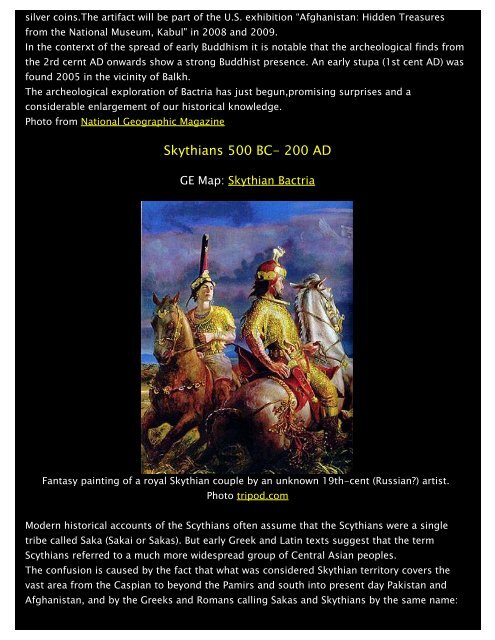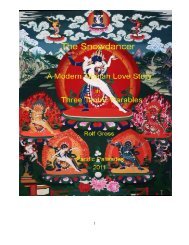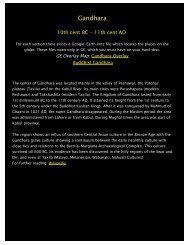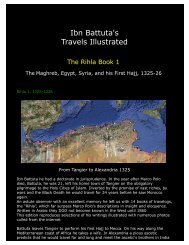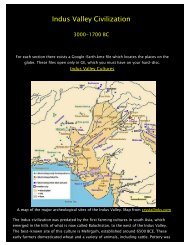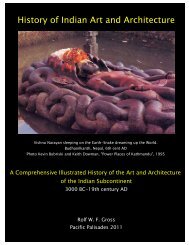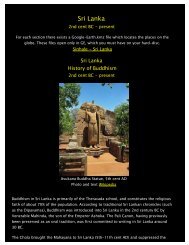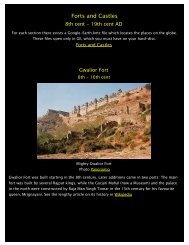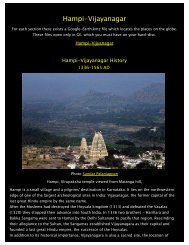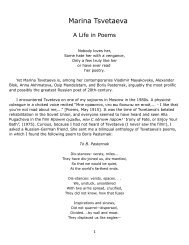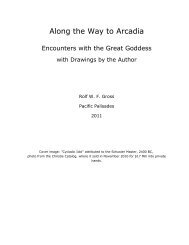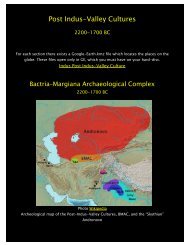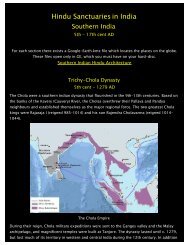The Greek Empires 312 - 60 BC - Rolf Gross
The Greek Empires 312 - 60 BC - Rolf Gross
The Greek Empires 312 - 60 BC - Rolf Gross
You also want an ePaper? Increase the reach of your titles
YUMPU automatically turns print PDFs into web optimized ePapers that Google loves.
silver coins.<strong>The</strong> artifact will be part of the U.S. exhibition “Afghanistan: Hidden Treasures<br />
from the National Museum, Kabul" in 2008 and 2009.<br />
In the conterxt of the spread of early Buddhism it is notable that the archeological finds from<br />
the 2rd cernt AD onwards show a strong Buddhist presence. An early stupa (1st cent AD) was<br />
found 2005 in the vicinity of Balkh.<br />
<strong>The</strong> archeological exploration of Bactria has just begun,promising surprises and a<br />
considerable enlargement of our historical knowledge.<br />
Photo from National Geographic Magazine<br />
Skythians 500 <strong>BC</strong>- 200 AD<br />
GE Map: Skythian Bactria<br />
Fantasy painting of a royal Skythian couple by an unknown 19th-cent (Russian?) artist.<br />
Photo tripod.com<br />
Modern historical accounts of the Scythians often assume that the Scythians were a single<br />
tribe called Saka (Sakai or Sakas). But early <strong>Greek</strong> and Latin texts suggest that the term<br />
Scythians referred to a much more widespread group of Central Asian peoples.<br />
<strong>The</strong> confusion is caused by the fact that what was considered Skythian territory covers the<br />
vast area from the Caspian to beyond the Pamirs and south into present day Pakistan and<br />
Afghanistan, and by the <strong>Greek</strong>s and Romans calling Sakas and Skythians by the same name:


